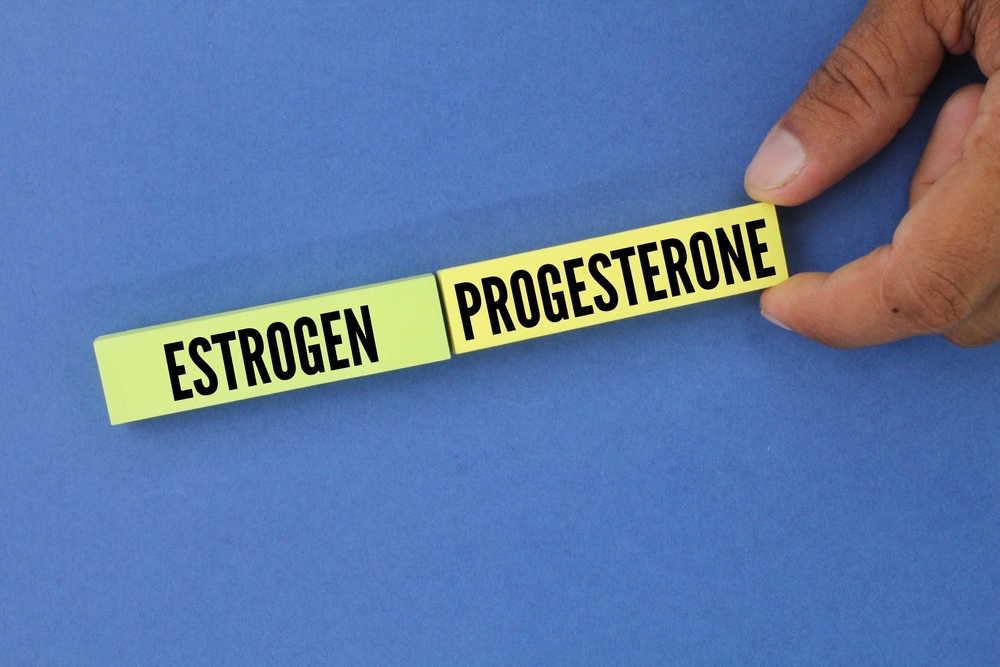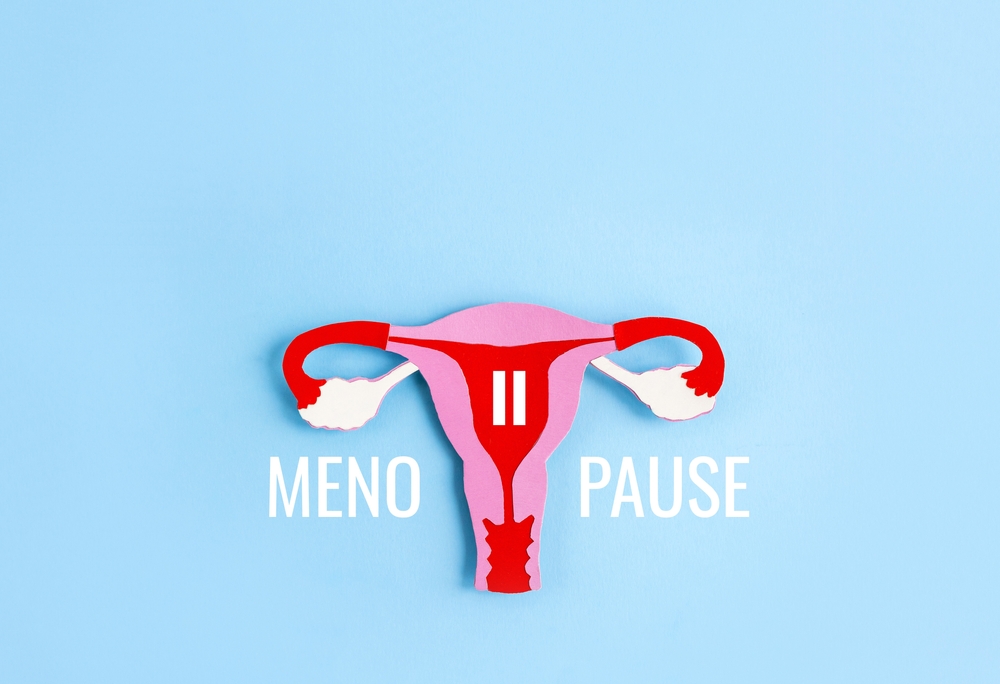Navigating life after menopause means navigating a slew of unique changes, but it also opens the door to new opportunities for self-care and well-being.
One critical area often overlooked is hormone health, which continues to play a vital role in maintaining overall physical and emotional balance postmenopause. From protecting your bones and heart to improving cognitive function and quality of life, healthy hormones are the unsung heroes of postmenopause.
This article explores why it's important to prioritize hormone health and provides actionable tips on how to balance hormones after menopause.

Hormones In Postmenopause: Everything You Need To Know
Menopause marks the end of a woman's reproductive years, bringing with it a significant shift in hormonal activity.
During menopause, the ovaries cease releasing eggs and produce lower levels of estrogen and progesterone. Once a woman has gone 12 consecutive months without a menstrual period, she enters postmenopause, a phase in which hormone levels remain consistently low.
This drop in estrogen and progesterone, two of the body's key regulatory hormones, can have widespread effects. Estrogen, in particular, plays an important role in various systems, including bone health, cardiovascular function, and mood stability. When levels of these hormones decline, women may experience symptoms such as hot flashes, night sweats, and vaginal dryness.
But these hormonal changes don't just affect comfort, they can also impact long-term health.
The Role of Hormones In The Body
In the body, hormones act as messengers by regulating essential processes and maintaining balance across multiple systems. In postmenopause, the diminished levels of estrogen and progesterone influence several critical areas:
Regulation Of Metabolic Health
Estrogen helps regulate metabolism by influencing how the body processes fats, sugars, and energy.
When levels drop, women may notice weight gain, particularly around the abdomen, even without changes to diet or exercise. These metabolic shifts can also increase the risk of type 2 diabetes and other metabolic disorders.
Bone Density
Estrogen plays a vital role in maintaining strong, healthy bones by promoting calcium absorption and reducing bone resorption (the process where bone tissue is broken down). After menopause, the decline in estrogen accelerates bone loss, increasing the risk of osteoporosis and fractures.
Cardiovascular Health
Estrogen supports heart health by keeping blood vessels flexible and promoting healthy cholesterol levels. Its decline can lead to stiffening arteries, higher LDL (bad cholesterol), and lower HDL (good cholesterol), all of which contribute to an increased risk of heart disease in postmenopausal women.
Mood And Emotional Well-Being
Hormonal fluctuations influence brain chemistry, including the production of neurotransmitters like serotonin, which affects mood.
Low estrogen levels are associated with heightened risks of depression, anxiety, and cognitive issues such as brain fog or memory lapses. While these changes are natural, they highlight the importance of maintaining hormone health in postmenopause.
Women can better protect their long-term health and improve their day-to-day quality of life by staying proactive about these hormonal shifts.
Common Health Risks Linked To Postmenopausal Hormonal Imbalance
Hormonal imbalances after menopause can impact various aspects of health, from bones and heart to mental clarity and physical comfort.
Osteoporosis and Bone Health
The decline in estrogen after menopause accelerates bone loss and increases the risk of osteoporosis.
Estrogen helps regulate the balance between bone formation and breakdown, and without it, bones can weaken rapidly. According to the National Osteoporosis Foundation, 1 in 2 women over 50 will experience an osteoporosis-related fracture in their lifetime.
Bone loss can occur at a rate of up to 3% annually during the initial postmenopausal years, highlighting the importance of maintaining hormonal health to support bone density and prevent fractures.
Cardiovascular Health
The risk of heart disease rises significantly after menopause, partly due to declining estrogen levels.
Estrogen helps to keep blood vessels flexible by reducing inflammation and supporting healthy cholesterol levels. After menopause, LDL (bad cholesterol) levels tend to increase, while HDL (good cholesterol) levels may drop.
This shift, combined with stiffer blood vessels, makes postmenopausal women more vulnerable to heart attacks and other cardiovascular events. Supporting hormone health can help mitigate these risks and promote heart health.
Mental And Cognitive Health
Hormonal changes can also affect emotional well-being and cognitive function.
Estrogen influences the production of serotonin and dopamine, neurotransmitters that regulate mood and mental clarity. As estrogen declines, women may experience anxiety, depression, and "brain fog." While more studies are needed, emerging research also suggests that estrogen may play a protective role against neurodegenerative diseases like Alzheimer's.
Vaginal And Urinary Health
Low estrogen levels can lead to genitourinary syndrome of menopause (GSM), which includes symptoms like vaginal dryness, irritation, and urinary incontinence.
Estrogen helps maintain the elasticity and moisture of vaginal tissues and strengthens the urinary tract. Without it, tissues become thinner and more prone to discomfort and infections, such as urinary tract infections (UTIs).
How To Balance Hormones After Menopause Naturally
While medical treatments and hormone therapy can be beneficial, women can help support their hormone health naturally through lifestyle changes. Diet, exercise, stress management, and sleep are all good places to start.
Diet And Nutrition
A nutrient-rich diet helps maintain hormonal balance during postmenopause.
Foods high in phytoestrogens, such as soy products, flaxseeds, and chickpeas, may help mimic estrogen in the body, supporting overall hormonal stability and alleviating symptoms like hot flashes or mood swings.
Healthy fats, such as those found in avocados, nuts, seeds, and fatty fish, are crucial for hormone production. The right additions to your diet can also help with symptoms brought on by hormonal fluctuations.
For example, omega-3 fatty acids, in particular, help regulate inflammation and support brain health, both of which can be affected by hormonal changes. A diet rich in antioxidant-packed fruits and vegetables supports the body's natural detoxification processes, which can help maintain a healthy hormonal balance.
Cruciferous vegetables, like broccoli and cauliflower, are especially beneficial because they contain compounds that assist the liver in processing hormones. Finally, staying hydrated and focusing on whole, unprocessed foods helps stabilize blood sugar levels.
Balanced blood sugar is critical for managing stress hormones like cortisol and maintaining consistent energy throughout the day.
Exercise And Physical Activity
Physical activity is one of the most effective natural ways to support hormone health.
Weight-bearing exercises, such as walking, jogging, or resistance training, are particularly important for maintaining bone density and reducing the risk of osteoporosis. Strength training also improves muscle mass, which can help counteract metabolic slowdowns that often occur after menopause.
Aerobic exercises like swimming, cycling, and dancing benefit cardiovascular health by improving blood flow, lowering cholesterol levels, and reducing blood pressure. Even moderate activities, such as gardening or brisk walking, can have a positive impact.
Stress Management
Chronic stress can disrupt hormonal balance by increasing levels of cortisol, the body's stress hormone.
Elevated cortisol can exacerbate weight gain, disrupt sleep, and negatively affect mood and heart health. Incorporating relaxation techniques into your routine can help lower cortisol levels and improve overall well-being.
Yoga, meditation, and mindfulness practices have been shown to reduce stress and promote emotional resilience. Spending time in nature, journaling, or even engaging in creative hobbies can also help manage stress.
Sleep Hygiene
Quality sleep is vital for hormone regulation, as many hormones, including cortisol, melatonin, and growth hormone, follow the body's circadian rhythm.
Postmenopausal women often experience sleep disturbances, but adopting good sleep hygiene can help. Start by establishing a consistent bedtime routine. Avoid stimulants like caffeine and alcohol in the evening, and limit screen time before bed, as blue light can interfere with melatonin production.
Create a calming environment by keeping the bedroom dark, cool, and quiet. If sleep disruptions persist, practices such as meditation or breathing exercises before bed may improve relaxation and sleep quality.
Medical Options For Hormonal Support
For many women, medical interventions provide an effective way to manage postmenopausal hormone imbalance. While natural approaches can help, medical options are often necessary for significant symptom relief or addressing long-term health risks.
Hormone Replacement Therapy (HRT)
Hormone replacement therapy (HRT) is a widely used treatment that involves supplementing the body with estrogen, or a combination of estrogen and progesterone, to alleviate symptoms of menopause.
HRT can reduce hot flashes, night sweats, and vaginal dryness while protecting against bone loss and possibly lowering the risk of colon cancer. However, HRT isn't without risks. Studies have shown that long-term use may increase the risk of certain conditions, such as blood clots, stroke, or breast cancer, depending on individual health factors.
This makes it essential to weigh the benefits and risks with a healthcare provider. For women seeking a more natural option, bioidentical hormones, which are chemically identical to those produced by the body, may be considered.
These hormones are available through FDA-approved prescriptions or compounded formulations. While proponents claim bioidentical hormones offer fewer side effects, robust scientific comparisons are still limited, so consultation with a knowledgeable healthcare professional is critical.
Non-Hormonal Alternatives
For women who cannot or prefer not to use HRT, non-hormonal options can provide symptom relief.
Certain medications, such as selective serotonin reuptake inhibitors (SSRIs) or serotonin-norepinephrine reuptake inhibitors (SNRIs), are effective in reducing hot flashes and improving mood. For vaginal and urinary symptoms, non-hormonal vaginal moisturizers and lubricants can help maintain comfort and tissue health.
Prescription options like ospemifene, a selective estrogen receptor modulator (SERM), may also address vaginal dryness without systemic estrogen exposure. Some women find symptom relief through supplements like black cohosh, evening primrose oil, or vitamin E.

Consulting A Healthcare Professional
Every woman's experience with postmenopause is unique, making personalized care essential. A healthcare professional can evaluate your symptoms, medical history, and risk factors to create a tailored treatment plan.
During your consultation, discuss:
- The severity of your symptoms and how they affect your daily life.
- Your personal and family medical history, especially regarding heart disease, osteoporosis, or breast cancer.
- Your preferences or questions regarding HRT, bioidentical hormones, or non-hormonal treatments.
Partnering with your doctor ensures that your treatment plan aligns with your health goals and minimizes risks, empowering you to navigate postmenopause with confidence and care.
How To Balance Hormones After Menopause: Getting Started
Taking the first steps to prioritize your hormonal health can feel overwhelming, but small, intentional actions can make a significant difference in how you feel and function.
Here are five easy steps to get started:
1. Educate Yourself
Understanding the role of hormones in your body is the foundation for making informed choices. Learn about the changes your body goes through during postmenopause and how those changes impact your overall health. This knowledge will empower you to take control of your wellness journey.
2. Assess Your Symptoms
Keep track of any symptoms you're experiencing, such as fatigue, mood changes, sleep disturbances, or hot flashes. Monitoring your symptoms over time can help you recognize patterns and identify triggers. This information will also be invaluable when discussing your health with a healthcare professional.
3. Make Lifestyle Adjustments
Small changes to your daily routine can significantly impact your hormone health. Focus on:
- Eating a balanced diet with nutrient-dense foods like leafy greens, whole grains, and healthy fats.
- Staying active through regular exercise, including weight-bearing and aerobic activities.
- Managing stress with mindfulness practices, relaxation techniques, or hobbies you enjoy.
- Improving sleep hygiene by maintaining a consistent bedtime and creating a calming nighttime routine.
4. Seek Professional Guidance
Your journey to better hormone health doesn't have to be taken alone.
Consulting with a healthcare provider who specializes in postmenopausal hormone imbalance can help you develop a plan tailored to your specific needs. They can recommend treatments, therapies, or lifestyle modifications to address your symptoms and long-term health goals.
5. Utilize Tools And Resources
Don't underestimate the power of a community or expert advice. Online assessments, like the free hormone assessment at Fem Excel, can provide personalized insights into your hormonal health and help you take the next step toward feeling your best.
Final Thoughts
​​Postmenopause is a transformative stage of life that brings unique challenges, particularly when it comes to hormone health.
By understanding the changes your body is undergoing and addressing them through a combination of lifestyle adjustments, natural remedies, and medical interventions, you can navigate this chapter with confidence and vitality.
Your hormonal health plays a key role in your overall well-being, influencing everything from mood and energy levels to heart and bone health. Taking proactive steps today can set the foundation for a healthier, more fulfilling tomorrow.
If you're ready to take charge of your hormone health, visit Fem Excel for a free hormone assessment. Our expert team is here to help you understand your unique needs and create a personalized plan for optimal health. Take the first step toward thriving in postmenopause, because you deserve to feel your best at every stage of life.





